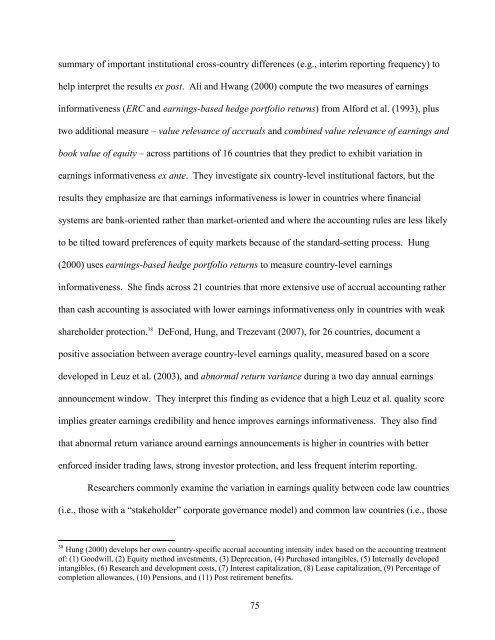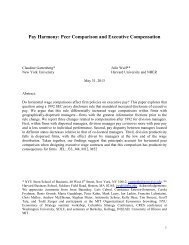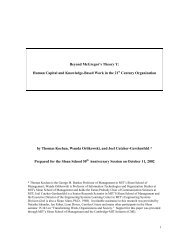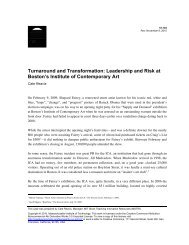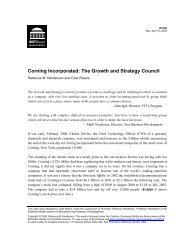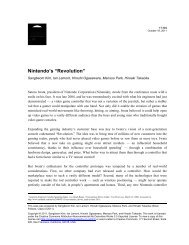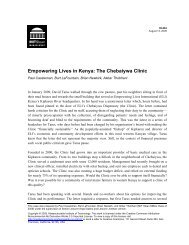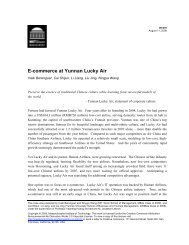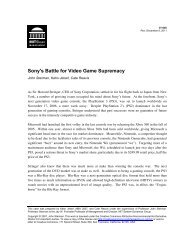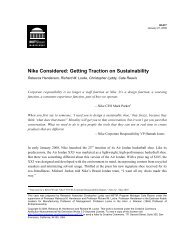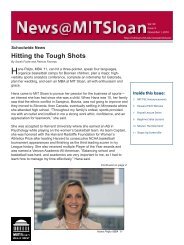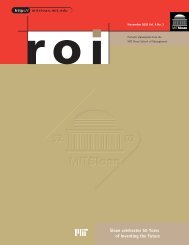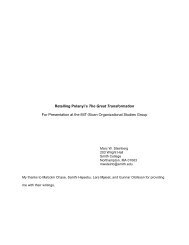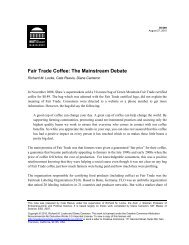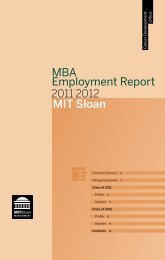Understanding earnings quality - MIT Sloan School of Management
Understanding earnings quality - MIT Sloan School of Management
Understanding earnings quality - MIT Sloan School of Management
Create successful ePaper yourself
Turn your PDF publications into a flip-book with our unique Google optimized e-Paper software.
summary <strong>of</strong> important institutional cross-country differences (e.g., interim reporting frequency) to<br />
help interpret the results ex post. Ali and Hwang (2000) compute the two measures <strong>of</strong> <strong>earnings</strong><br />
informativeness (ERC and <strong>earnings</strong>-based hedge portfolio returns) from Alford et al. (1993), plus<br />
two additional measure – value relevance <strong>of</strong> accruals and combined value relevance <strong>of</strong> <strong>earnings</strong> and<br />
book value <strong>of</strong> equity – across partitions <strong>of</strong> 16 countries that they predict to exhibit variation in<br />
<strong>earnings</strong> informativeness ex ante. They investigate six country-level institutional factors, but the<br />
results they emphasize are that <strong>earnings</strong> informativeness is lower in countries where financial<br />
systems are bank-oriented rather than market-oriented and where the accounting rules are less likely<br />
to be tilted toward preferences <strong>of</strong> equity markets because <strong>of</strong> the standard-setting process. Hung<br />
(2000) uses <strong>earnings</strong>-based hedge portfolio returns to measure country-level <strong>earnings</strong><br />
informativeness. She finds across 21 countries that more extensive use <strong>of</strong> accrual accounting rather<br />
than cash accounting is associated with lower <strong>earnings</strong> informativeness only in countries with weak<br />
shareholder protection. 38 DeFond, Hung, and Trezevant (2007), for 26 countries, document a<br />
positive association between average country-level <strong>earnings</strong> <strong>quality</strong>, measured based on a score<br />
developed in Leuz et al. (2003), and abnormal return variance during a two day annual <strong>earnings</strong><br />
announcement window. They interpret this finding as evidence that a high Leuz et al. <strong>quality</strong> score<br />
implies greater <strong>earnings</strong> credibility and hence improves <strong>earnings</strong> informativeness. They also find<br />
that abnormal return variance around <strong>earnings</strong> announcements is higher in countries with better<br />
enforced insider trading laws, strong investor protection, and less frequent interim reporting.<br />
Researchers commonly examine the variation in <strong>earnings</strong> <strong>quality</strong> between code law countries<br />
(i.e., those with a “stakeholder” corporate governance model) and common law countries (i.e., those<br />
38 Hung (2000) develops her own country-specific accrual accounting intensity index based on the accounting treatment<br />
<strong>of</strong>: (1) Goodwill, (2) Equity method investments, (3) Deprecation, (4) Purchased intangibles, (5) Internally developed<br />
intangibles, (6) Research and development costs, (7) Interest capitalization, (8) Lease capitalization, (9) Percentage <strong>of</strong><br />
completion allowances, (10) Pensions, and (11) Post retirement benefits.<br />
75


